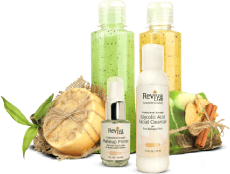
Have you ever wondered why some skincare products work wonders while others leave your skin irritated or unimpressed? The secret lies in the science of beauty—from the ingredients in your skincare routine to how different formulations interact with your skin.
Understanding the science behind beauty isn’t just for chemists and dermatologists; it empowers you to make smarter choices for your skin and get the best results. In this post, we’ll break down essential skincare ingredients, explore how formulations work, and give you expert tips for crafting the perfect beauty regimen.
Key Ingredients in Skincare and Why They Matter
The beauty industry is packed with buzzwords, but which ingredients actually deliver results? Here’s a breakdown of some of the most powerful skincare components and how they work.
Hyaluronic Acid: The Ultimate Hydrator
Think of hyaluronic acid (HA) as a moisture magnet for your skin. This powerhouse molecule can hold up to 1,000 times its weight in water, keeping your skin plump, soft, and hydrated. It’s perfect for all skin types—especially if you struggle with dryness or fine lines.
Pro tip: Use HA on damp skin and seal it with a moisturizer to lock in hydration.
Retinol: The Anti-Aging Hero
Retinol (a form of Vitamin A) is your best friend if you want smoother, younger-looking skin. It boosts collagen production, speeds up cell turnover, and helps fade fine lines, wrinkles, and dark spots.
But here’s the catch—retinol can be irritating if you jump in too fast. Start with a low concentration (0.3% or less) every other night, and always wear SPF during the day!
Vitamin C: The Brightening Powerhouse
Vitamin C is like your morning glow booster—it brightens the skin, fades dark spots, and fights free radicals that cause premature aging.
Look for A stable formula (L-ascorbic acid or tetrahexyldecyl ascorbate) in an opaque, airtight bottle to keep it from oxidizing.
Niacinamide: The Skin Soother
Got redness, acne, or uneven skin tone? Niacinamide (Vitamin B3) is a multitasking superstar. It reduces inflammation, minimizes pores, and helps regulate oil production—making it a must-have for acne-prone and sensitive skin.
Bonus: It also strengthens the skin barrier, protecting you from environmental stressors.
Peptides: The Skin Repair Boosters
Peptides are the building blocks of collagen and elastin, which keep your skin firm and youthful. They help repair damage, smooth fine lines, and boost elasticity—making them a great addition to any anti-aging routine.
Best for: Mature skin or anyone looking to slow down the signs of aging.
How Skincare Formulation Affects Your Skin
Choosing the right ingredients is important—but how they’re formulated makes all the difference. Here’s what you need to know:
The Role of pH Balance
Your skin’s natural pH is around 5.5 (slightly acidic). If a skincare product disrupts this balance, it can lead to irritation, breakouts, or dryness.
Look for Products that match your skin’s pH, especially when using active ingredients like acids or vitamin C.
Water-Based vs. Oil-Based Formulas
Water-based products (serums, gels) are lightweight and ideal for oily or acne-prone skin.
Oil-based formulas (face oils, rich creams) provide deep hydration, making them perfect for dry or mature skin.
Active Ingredients and Stability
Some ingredients lose their potency quickly if exposed to light, air, or heat (like vitamin C and retinol).
Pro tip: Store these products in dark, airtight containers and avoid excessive exposure to sunlight.
Building an Effective Beauty Regimen
Now that you know what ingredients to look for, let’s build a simple yet effective skincare routine.
Cleanse – Start with a Fresh Slate
Use a gentle, sulfate-free cleanser to remove dirt and oil without stripping your skin’s moisture.
Double cleansing (oil-based + water-based cleanser) can be a game changer, especially if you wear makeup or sunscreen.
Hydrate & Prep with a Toner
Toners rebalance your skin and enhance serum absorption. Look for ingredients like aloe vera, rose water, or witch hazel for added soothing benefits.
Treat with Serums
Serums are where the magic happens! Choose one based on your skin goals:
Hyaluronic Acid → Intense hydration
Vitamin C → Brightening & antioxidant protection
Niacinamide → Soothing & oil control
Retinol → Anti-aging & skin renewal
Moisturize to Lock It All In
Your moisturizer seals in hydration and supports your skin barrier.
Oily skin? Opt for a gel-based moisturizer.
Dry skin? A rich cream with ceramides or peptides is your best bet.
SPF – The Non-Negotiable Step
Sun damage is the #1 cause of premature aging. Use broad-spectrum SPF 30+ every single day—yes, even when it’s cloudy!
Bonus: A tinted sunscreen can double as a light coverage base.
The Future of Beauty Science
Skincare is evolving rapidly, with personalized products, AI-powered skin analysis, and microbiome-friendly formulations becoming the next big thing. Scientists are also exploring bioengineered ingredients that mimic natural skin functions for even better results.
Staying informed about the science behind beauty helps you navigate the overwhelming world of skincare and make smart, effective choices.
Conclusion
Skincare doesn’t have to be complicated—once you understand how ingredients work and what your skin truly needs, you can build a routine that delivers real results. Whether your goal is hydration, anti-aging, or a radiant glow, the key is choosing products backed by science and using them consistently.
By embracing the power of smart formulations and effective ingredients, you’re not just caring for your skin—you’re investing in its long-term health. So, the next time you shop for skincare, read the labels, trust the science, and give your skin the care it deserves.
Here’s to glowing, healthy skin—powered by knowledge!